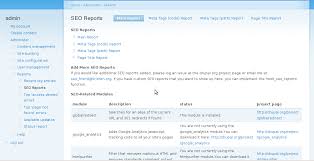Enhancing SEO Performance with Next.js: A Guide to Optimising Your Website’s Visibility
The Power of Next.js for SEO: Boosting Your Website’s Visibility
Next.js has emerged as a powerful tool for web developers looking to enhance their websites’ search engine optimisation (SEO) capabilities. This innovative framework offers a range of features that can significantly improve your site’s visibility on search engine results pages. Let’s delve into how Next.js can supercharge your SEO efforts.
Server-side Rendering (SSR)
One of the key advantages of Next.js is its support for server-side rendering (SSR). SSR allows search engines to crawl and index your website more effectively, leading to improved discoverability. By pre-rendering pages on the server before sending them to the client, Next.js ensures that search engine bots can easily interpret and rank your content.
Dynamic Meta Tags
Next.js simplifies the process of managing meta tags, such as title tags and meta descriptions, which play a crucial role in SEO. With dynamic meta tags, you can customise these elements based on the content of each page, making it easier for search engines to understand and categorise your website.
Optimised Performance
Page speed is a critical factor in SEO rankings, and Next.js excels in delivering fast-loading websites. Its built-in optimisations, such as automatic code splitting and prefetching, help reduce loading times and improve user experience – factors that search engines like Google consider when ranking websites.
Structured Data Support
Next.js offers robust support for structured data, allowing you to mark up your content with schema.org annotations. By implementing structured data markup, you provide search engines with additional context about your website’s content, increasing the chances of earning rich snippets in search results.
SEO-Friendly Routing
The routing system in Next.js is designed to be SEO-friendly, enabling you to create clean URLs that are easy for both users and search engines to understand. By structuring your website with logical routes and meaningful URLs, you enhance its navigational experience and make it more appealing to search engine algorithms.
Conclusion
Incorporating Next.js into your web development toolkit can have a profound impact on your website’s SEO performance. From improved server-side rendering capabilities to enhanced page speed and structured data support, Next.js offers a comprehensive set of features that can elevate your website’s visibility in search engine results. By leveraging the power of Next.js for SEO, you can drive more organic traffic to your site and establish a stronger online presence.
Enhancing SEO with Next.js: Six Key Advantages for Improved Search Visibility
- Server-side rendering (SSR) improves SEO by enabling search engines to crawl and index content more effectively.
- Dynamic meta tags allow for customisation of title tags and meta descriptions, enhancing search engine understanding.
- Optimised performance features like automatic code splitting and prefetching improve page speed, a crucial SEO factor.
- Structured data support through schema.org annotations increases the likelihood of earning rich snippets in search results.
- SEO-friendly routing system creates clean URLs that are user-friendly and easily understood by search engines.
- Comprehensive set of features in Next.js can elevate website visibility in search engine results pages.
Challenges of Next.js SEO: Navigating Learning Curves, Setup Complexities, and More
- Learning curve
- Initial setup complexity
- Limited flexibility
- Performance overhead
- Dependency management
- SEO plugin limitations
- Documentation gaps
Server-side rendering (SSR) improves SEO by enabling search engines to crawl and index content more effectively.
Server-side rendering (SSR) in Next.js is a game-changer for SEO as it enhances the visibility of websites by allowing search engines to crawl and index content more efficiently. By pre-rendering pages on the server side, Next.js ensures that search engine bots can easily access and interpret website content, leading to improved discoverability and higher rankings on search engine results pages. This proactive approach to rendering not only benefits SEO efforts but also enhances the overall user experience by delivering faster-loading pages and ensuring that content is readily available for indexing.
Dynamic meta tags allow for customisation of title tags and meta descriptions, enhancing search engine understanding.
Dynamic meta tags in Next.js offer a valuable advantage for SEO by enabling customisation of title tags and meta descriptions. This feature allows website owners to tailor these essential elements based on the specific content of each page, ultimately improving search engine comprehension and categorisation. By dynamically adjusting meta tags, websites can enhance their visibility in search results and attract more relevant traffic, leading to increased organic reach and improved SEO performance.
Optimised performance features like automatic code splitting and prefetching improve page speed, a crucial SEO factor.
Optimised performance features such as automatic code splitting and prefetching in Next.js play a vital role in enhancing page speed, a key factor that significantly impacts SEO rankings. By efficiently managing code resources and preloading necessary assets, Next.js ensures that websites load quickly and provide a seamless user experience. This improved page speed not only benefits user engagement but also signals to search engines like Google that the site is well-optimised, ultimately boosting its visibility and ranking in search results.
Structured data support through schema.org annotations increases the likelihood of earning rich snippets in search results.
Structured data support through schema.org annotations in Next.js plays a crucial role in enhancing a website’s SEO performance. By implementing structured data markup, websites using Next.js can provide search engines with valuable context about their content, increasing the probability of earning rich snippets in search results. Rich snippets not only improve the visibility of a website on search engine results pages but also enhance the overall user experience by offering more informative and visually appealing search listings. This feature of Next.js demonstrates its ability to boost a website’s discoverability and engagement through effective SEO strategies.
SEO-friendly routing system creates clean URLs that are user-friendly and easily understood by search engines.
Next.js excels in providing an SEO-friendly routing system that generates clean and user-friendly URLs, which are easily comprehensible for both website visitors and search engine algorithms. By structuring websites with logical routes and meaningful URLs, Next.js enhances the overall user experience and ensures that search engines can efficiently crawl and index the content. This feature not only improves the navigational experience for users but also boosts the website’s visibility in search engine results, ultimately driving more organic traffic to the site.
Comprehensive set of features in Next.js can elevate website visibility in search engine results pages.
The comprehensive set of features offered by Next.js can significantly enhance a website’s visibility in search engine results pages. By leveraging Next.js for SEO, web developers can take advantage of advanced functionalities such as server-side rendering, dynamic meta tags, optimised performance, structured data support, and SEO-friendly routing. These features work together to improve a website’s search engine rankings, making it more discoverable to users searching for relevant content online. With Next.js, businesses can effectively boost their online presence and attract more organic traffic through enhanced visibility on search engine results pages.
Learning curve
One notable drawback of utilising Next.js for SEO is its steep learning curve in contrast to more straightforward frameworks. The complexity of Next.js may pose a challenge for developers who are accustomed to simpler tools, requiring additional time and effort to grasp its intricacies. This learning curve could potentially slow down the implementation of SEO strategies and hinder the optimisation process, especially for those with limited experience in working with advanced web development technologies.
Initial setup complexity
When considering the use of Next.js for SEO, one notable drawback to be aware of is the initial setup complexity. Implementing Next.js for optimal search engine optimisation may necessitate additional configuration and expertise. Setting up the framework to maximise its SEO capabilities could pose a challenge for those without prior experience or technical proficiency in SEO practices. Therefore, users embarking on utilising Next.js for SEO should be prepared to invest time and effort into understanding and configuring the framework effectively to achieve desired results in search engine visibility.
Limited flexibility
One drawback of Next.js for SEO is its limited flexibility, as the framework imposes certain conventions that can restrict the level of customisation available for optimising SEO. These predefined conventions may not always align perfectly with specific SEO strategies or requirements, potentially hindering the ability to tailor certain aspects of the website for optimal search engine visibility. While Next.js offers many advantages for SEO, including server-side rendering and performance enhancements, the constraints imposed by its conventions may pose challenges for developers seeking a high degree of customisation in their SEO efforts.
Performance overhead
The performance overhead is a notable con of utilising Next.js for SEO. While the advanced features offered by Next.js are beneficial for enhancing website functionality and SEO capabilities, they can also result in increased server-side processing. This heightened processing demand may lead to slower loading times and overall performance issues, potentially impacting user experience and SEO rankings. It is essential for developers to carefully balance the use of advanced Next.js features with performance considerations to ensure optimal website speed and efficiency.
Dependency management
When it comes to Next.js SEO, one notable challenge lies in dependency management. Handling dependencies within a Next.js project can introduce complexities not commonly encountered in other frameworks. The intricate nature of managing dependencies in Next.js can pose obstacles that may impact the seamless implementation of SEO strategies. This added layer of complexity requires careful navigation to ensure that the website’s performance and search engine visibility are not compromised by challenges related to dependency management.
SEO plugin limitations
One drawback of utilising Next.js for SEO is the potential limitation when it comes to integrating certain SEO plugins or tools. In some cases, these plugins may not seamlessly integrate with Next.js, necessitating the need for workarounds or custom solutions to ensure optimal functionality. This can add complexity to the SEO implementation process and may require additional time and resources to address compatibility issues effectively. It’s essential for developers and website owners to be aware of these potential challenges and be prepared to find alternative solutions to maximise the SEO effectiveness of their Next.js-powered websites.
Documentation gaps
One notable drawback of utilising Next.js for SEO is the presence of documentation gaps. As Next.js continues to evolve rapidly, users may encounter gaps in available documentation or community support when addressing specific SEO-related issues. These gaps can pose challenges for developers seeking comprehensive guidance on optimising their websites for search engines within the Next.js framework. Navigating through these documentation limitations may require additional research and troubleshooting, potentially slowing down the implementation of effective SEO strategies within Next.js projects.



